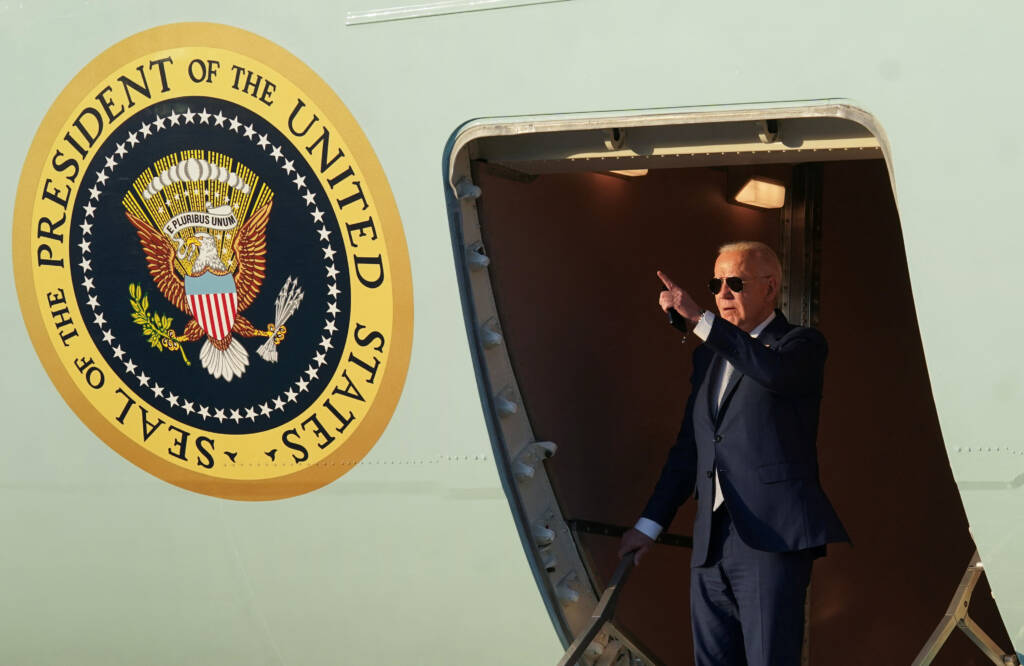The candid revelations from Defense Secretary Lloyd Austin and National Security Adviser Jake Sullivan betray a stark reality. The intention is clear: to “hold the line” — a euphemism for perpetuating the conflict without a clear exit strategy or victory in sight. Despite the highfalutin rhetoric of solidarity, Washington’s maneuvers are tantamount to war by proxy, where Ukrainian valor and resilience are exploited to wear down Russian ambitions at a safe distance.
This manipulation is further evidenced by the provision of ATACMS munitions capable of striking deep within Russian-held territories, suggesting a willingness to escalate confrontations at Ukraine’s expense. Moreover, the December 2022 secret modifications to HIMARS systems, restricting their range to avoid antagonizing Moscow, clearly illustrate a duplicitous strategy. While providing advanced weaponry, the U.S. simultaneously ensures they cannot be used to decisively shift the battle’s tide, thereby avoiding a “wider war” that Washington is clearly not prepared to engage in directly.
It’s particularly egregious when considering the historical context. Recall Gen. Mark Milley’s 2021 congressional testimony, starkly predicting Kyiv’s rapid fall in the event of a full-scale Russian invasion. Was there ever a genuine belief in Ukraine’s potential to prevail, or was the intention always to maintain just enough resistance to serve American interests?
The unfolding situation reeks of exploitation and strategic ambivalence. By dangling the carrot of military aid without committing to a path for Ukrainian victory, the U.S. continues to wield Ukraine as a cudgel against Russia — ensuring a protracted conflict that serves American geopolitical interests, with scant regard for Ukrainian sovereignty or the human cost. This is not just a failure of strategy but a profound moral failing. As Ukrainians fight and die, the U.S. appears content to watch from the sidelines, calculating gains in a cold, detached manner. This is not the act of an ally but that of a cynic playing a very dangerous game.
The disheartening reality of Ukraine’s plight reveals a stark and disturbing strategy by the U.S.: exploiting the Ukrainian struggle as merely a tool to weaken Russia, heedless of the grave human costs involved. The narrative spun by Washington, under the guise of support, has morphed Ukraine into the very “forever war” President Biden once vowed to avoid. This conflict has become a cynical exercise in geopolitical maneuvering, where genuine Ukrainian victories and aspirations are overshadowed by the cold calculus of U.S. interests.
From the outset, the fall of Ukraine seemed inevitable to many, yet the unexpected resilience and successes of Ukrainian forces threw a wrench into a preordained script of quick defeat. As Ukrainian troops demonstrated formidable resistance, reclaiming territories such as Kherson and repelling forces near Kyiv, the White House’s true objective became glaringly obvious: not to enable a Ukrainian victory, but to orchestrate a stalemate, prolonging the conflict to drain Russian resources and resolve.
Statements by U.S. officials have unmasked this strategy of manipulation. Gen. Milley’s comments to the Economic Club of New York hinted at a reluctance to pursue a Ukrainian military victory, instead suggesting a rush to negotiation at the first sign of Russian willingness. Secretary of State Anthony Blinken’s assertion that the war’s end “depends mostly on Vladimir Putin” further underscores a passive strategy that hinges on Russian decisions rather than Ukrainian needs or sovereignty.
Defense Secretary Lloyd Austin’s remarks about aiming for a negotiated end that leaves Ukraine in a “good position” does little to mask the betrayal: it suggests a readiness to trade off parts of Ukraine for geopolitical gains, perhaps even sacrificing Ukraine’s integrity for NATO expansion or other U.S. strategic benefits.
Amidst this backdrop, Ukrainian President Zelensky and the European allies stand in defiance, unwilling to accept compromises that undercut Ukraine’s sovereignty. Meanwhile, the human toll mounts as Russia entrenches itself, preparing for a long conflict engineered by U.S. policy. It’s clear: Washington’s priority was never the freedom or victory of Ukraine, but a protracted conflict to debilitate Russia, with Ukraine as the battlefield and its people the pawns.
